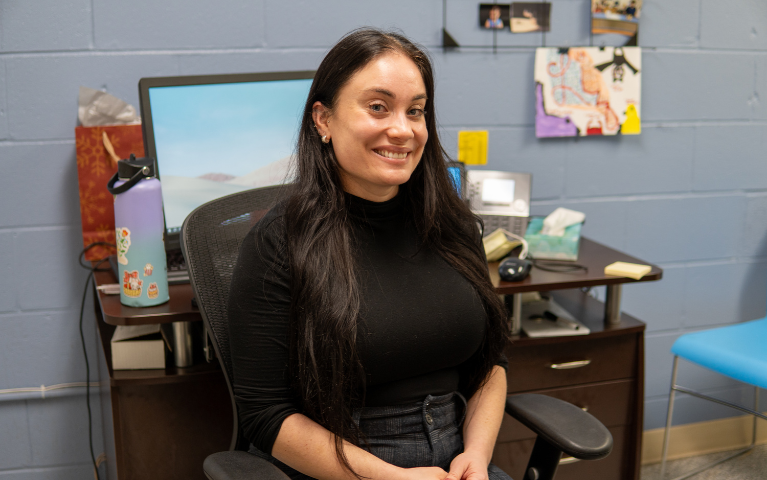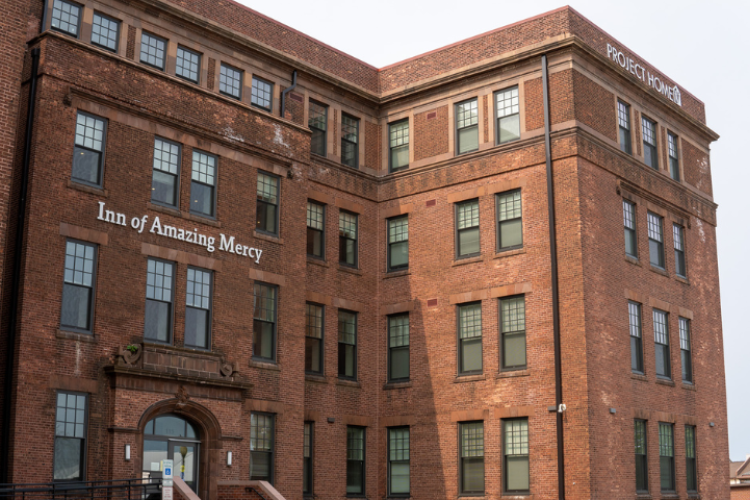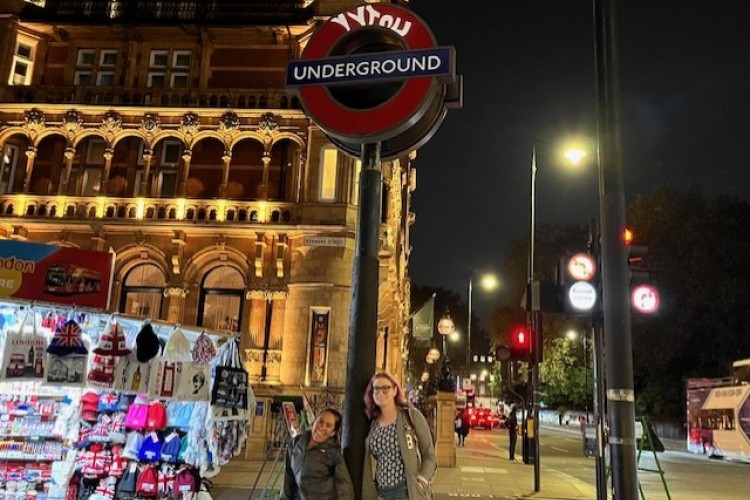Taking Mental Health to the Street

The struggle many unhoused Philadelphians experience securing essentials like nutritious food and safe shelter often obscures their equally critical need for proper healthcare. And unaddressed medical issues often worsen over time, further complicating their attempts to improve their lives.
Our Epstein Street Medicine Program’s work to provide quality care to persons with physical ailments, like open wounds, has been well documented. But we understand that physical health and emotional and mental health are inseparable; addressing one illness absent the others is unlikely to be effective long-term.
Nearly two years ago Elizabeth “Liz” Frasch joined the street medicine team as its first psychiatric nurse practitioner. Liz spends three days a week at the Hub of Hope and one day going out with our outreach and street medicine teams.
“I see people for outpatient mental health care. I do medication and psychiatric evaluations. On Fridays, I do those same things, but in the field, so I meet people where they are. We also do medication management,” she said.
Trust is a hard-won commodity, one earned through consistency and familiarity. And as Liz increased her schedule, she could see a shift in the number of people seeking mental health services.
“People in general have some distrust for mental health care providers, just because they've had bad experiences in the past,” said Liz. “Sometimes it takes three or four times of me meeting somebody before they're interested in starting a medication, or before they're really opening up.”
She says it is all about consistency, and seeing someone more frequently eventually helps those walls come down. “It’s huge, because I'm able to just have those little conversations first, and then we can kind of dig into the more emotional topics and then start medication. That's when we see really cool changes and that's where the exciting stuff starts.”
Kara Cohen, street medicine’s associate medical director, has also noticed a positive change in their efforts with Liz’s help. “Liz is amazing and she's such an asset to our team.” Kara says having Liz present more regularly has influenced more patients to regain control of her mental health.
“When we engage with somebody on the street, when it’s possible, we like to encourage them to go to one of our brick-and-mortar sites to get more complete care. We have been able to do that a lot where [Liz] will engage with someone in the street and follow up with them at the Hub of Hope. She's been able to start people on medications who have been extremely reticent to talk to healthcare providers in the past who have a terrible fear of all health care, but especially mental health providers.”
Making the connection is the first step, but working towards regular mental health treatment is not always linear. A significant approach for Liz in the field involves caring for people where they are, even if it is only for a few minutes. “Liz will do a five-minute visit within the street. So, the ability to do a curbside consult has been really great,” says Kara.
Experiencing homelessness can cause trauma, regardless of a person’s earlier mental health condition. “It is a very significant experience for some people, and it sticks with them for years, often, even after they get housing,” said Liz. “It's important always to look at somebody holistically. Mental health is as important as physical health and their safety and security. We have to look at it all.”
As a healthcare provider, Liz strives to see her patients succeed. While stationed in South Philly, she connected with a person who was experiencing homelessness and suffered from PTSD. Gradually, they worked to get him on the right medications and prioritized his mental health.
“He’s doing great. He comes in and sees me at the Hub fairly regularly. He’s in therapy somewhere else now, and he’s living in a house in South Philly.” Liz recalls feeling flooded with emotions seeing her patient improving and says it is stories like this that keep her motivated to help others on their healing journey. “My first meeting with him was under I-95. So, this was like a huge shift. It’s a really cool story and he’s doing great.”
Liz encourages everyone to find time for themselves and engage in a self-care activity or hobby to support a healthy headspace. “I love my patients, and I love seeing them grow. There's a lot of opportunities for growth for all of us.”

